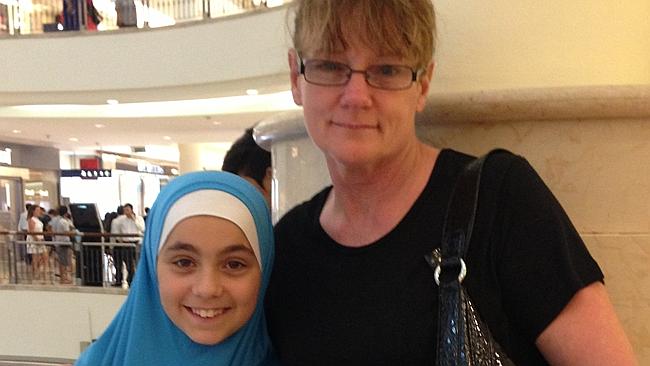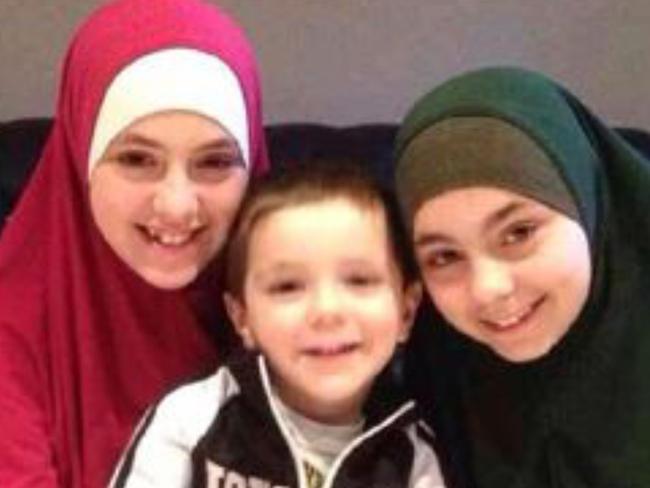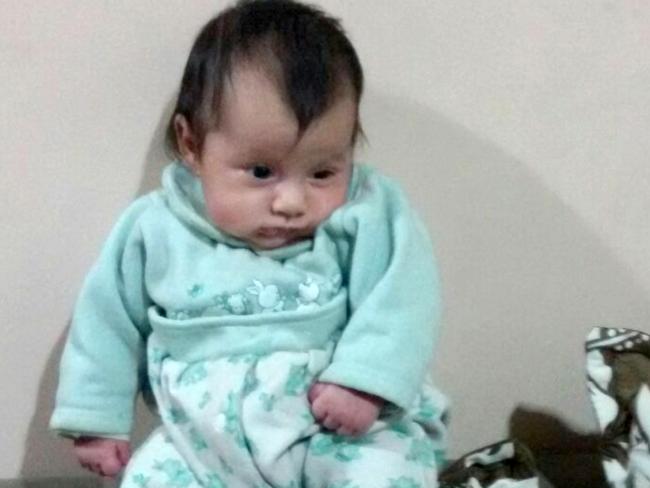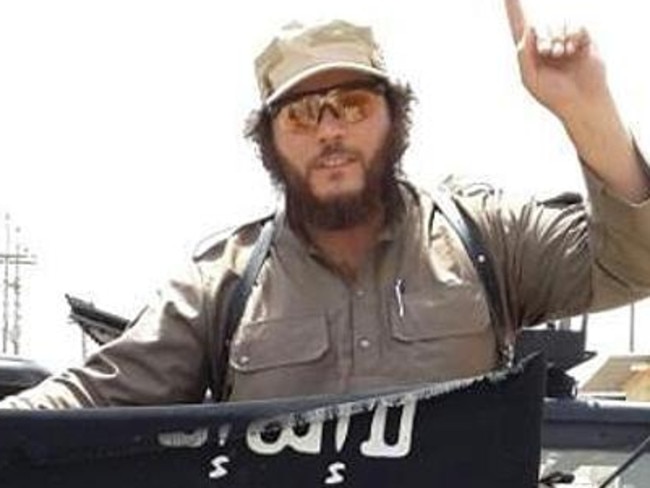Why terrorist’s daughter Zaynab Sharrouf needs to get out of Syria
THE daughter of killed Australian terrorist Khaled Sharrouf has broken her silence in Syria. She says she’s fine, but experts warn it’s time to get her out.

EXPERTS have warned a 14-year-old Australian mother, orphaned in Syria when her notorious terrorist father was killed fighting with Islamic State, is at risk of serious psychological damage if she isn’t brought home.
Zaynab Sharrouf, the eldest daughter of Australian terrorist Khaled Sharrouf, is the sole carer of her four younger siblings and her baby, whose father, terrorist Mohamed Elomar, is also dead.
The teenager was smuggled into Syria with the rest of her family in 2013, with her father using his brother’s passport to bypass authorities and leave the country.
In online conversations with a Daily Telegraph reporter, the teen mum has told of the stress she is facing, but says she, her baby, and siblings, are “fine”.
“I’m fine and my daughter and siblings are fine,” she said.
But experts have told news.com.au Ms Sharrouf’s situation is a lot worse than she’s letting on.
Co-director at the Australian Intervention Support Hub at Australian National University, Clarke Jones, told news.com.au the situation in Raqqa, Syria, where the young woman is believed to be holed up, is very unstable.
“Overall it’s a very unsafe environment, not only for the ongoing military action, you wouldn't know whether you're going to be hit one day or the next. The Islamic State use civilian targets to operate, so no one’s really safe in that environment,” Dr Clarke said.
In her messages, Ms Sharrouf described being at risk of drone attacks.
“They hit families a lot,” she said.

Dr Jones says the level of violence in IS-controlled parts of Syria makes it unsuitable for anyone, let alone children, to be living.
“I don’t see it at all as a warm loving environment for children. There has been work done showing kids playing in playgrounds full of rubble. The longer the kids are in that sort of environment, there’s definitely trauma associated with those sorts of conditions,” he said.
Director of the Centre for Women’s Mental Health at Victoria’s Royal Women’s Hospital, Professor Louise Newman, said it was important to remember the young mother was a child herself.
“She’s 14 years old. Regardless of what our views are about the actions of her father, she’s lost him, her mother as well. She’s now orphaned, alone in a war zone, attempting to parent. She’s very much at risk from a mental health point of view,” she said.
“We see in clinical work with mothers how a loss can really make childbirth and parenting difficult. I also work with teenage parents and the issues for them are very complex. In many ways they’re not emotionally equipped to take on that responsibility. Many of them, like this young woman, would try incredibly hard, they would very much like it to be successful. The main concern I have is she’s abandoned.”

Prof Newman said the young woman would be very much at risk of ongoing psychological damage because of her situation, as would her child and the others she was caring for.
“She’s admitted that she’s stressed and she’s probably very anxious, at risk of developing quite severe depressive disorder, and she’s also experienced trauma and is likely to have post traumatic stress symptoms, all of which she is not receiving support with,” she said.
“That also affects her capacity if she’s going to remain a carer, on her parenting capacity. It’s really quite serious.”
Ms Sharrouf also confirmed in her messages she was in regular contact with her grandmother, Karen Nettleton, who has reportedly begun travelling on a rescue mission to bring her grandchildren and great granddaughter home.
In her limited communications, Ms Sharrouf has given no indication of wanting to return to Australia.
If she did, it’s unlikely the government would ever bend to have her back.

Immigration Minister Peter Dutton has previously said the government would have to consider if the children would be allowed back into Australia, with concerns their radicalisation and exposure to IS in Syria could threaten national security.
Dr Jones has long said Australian authorities should make efforts to bring the children home safely.
“Regardless of whether they wanted to go, we should be trying to get them out,” Dr Jones said. “It would be a high risk situation, but certainly if you could get them close to some sort of possible position of extraction, it would be a positive move to try.”




